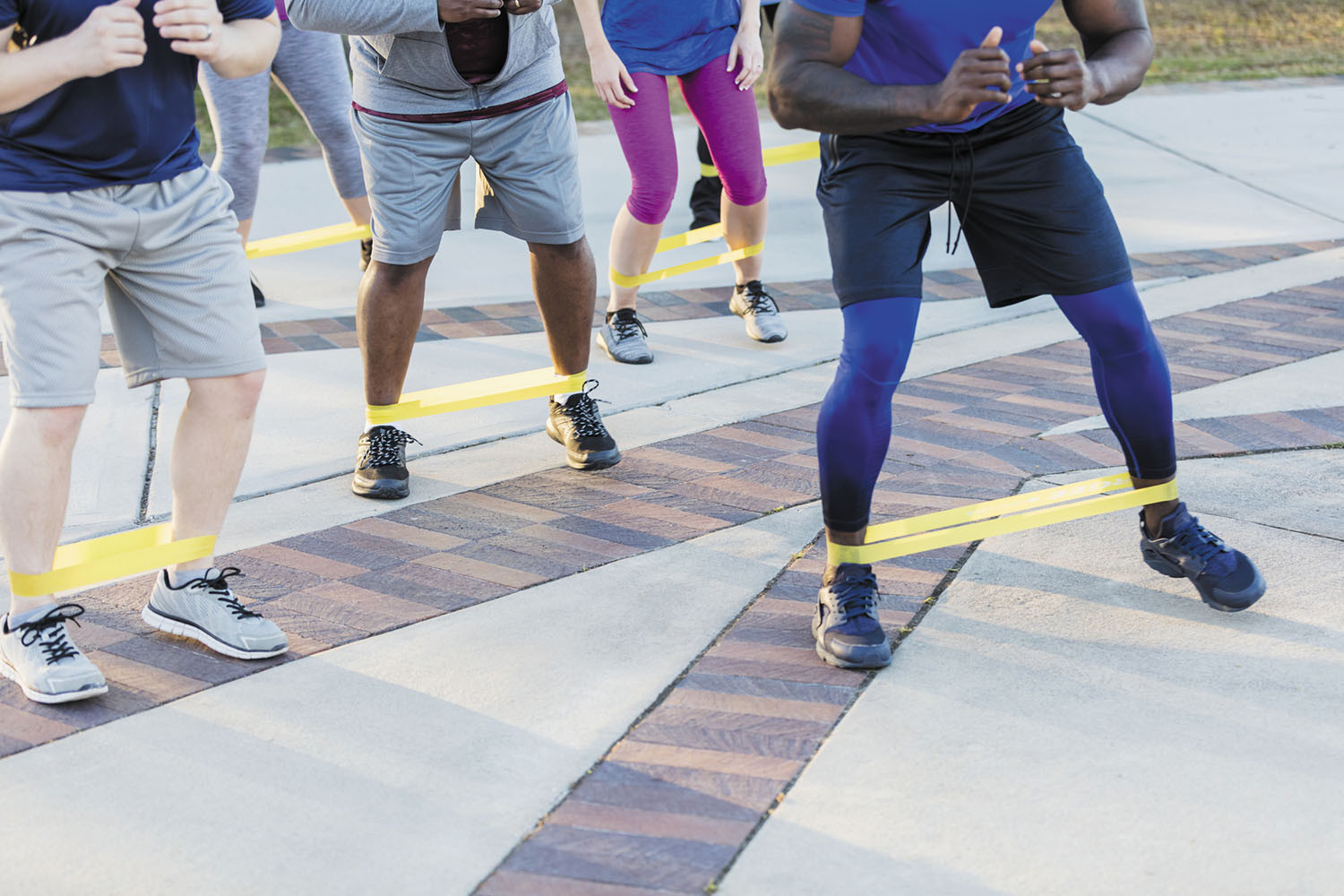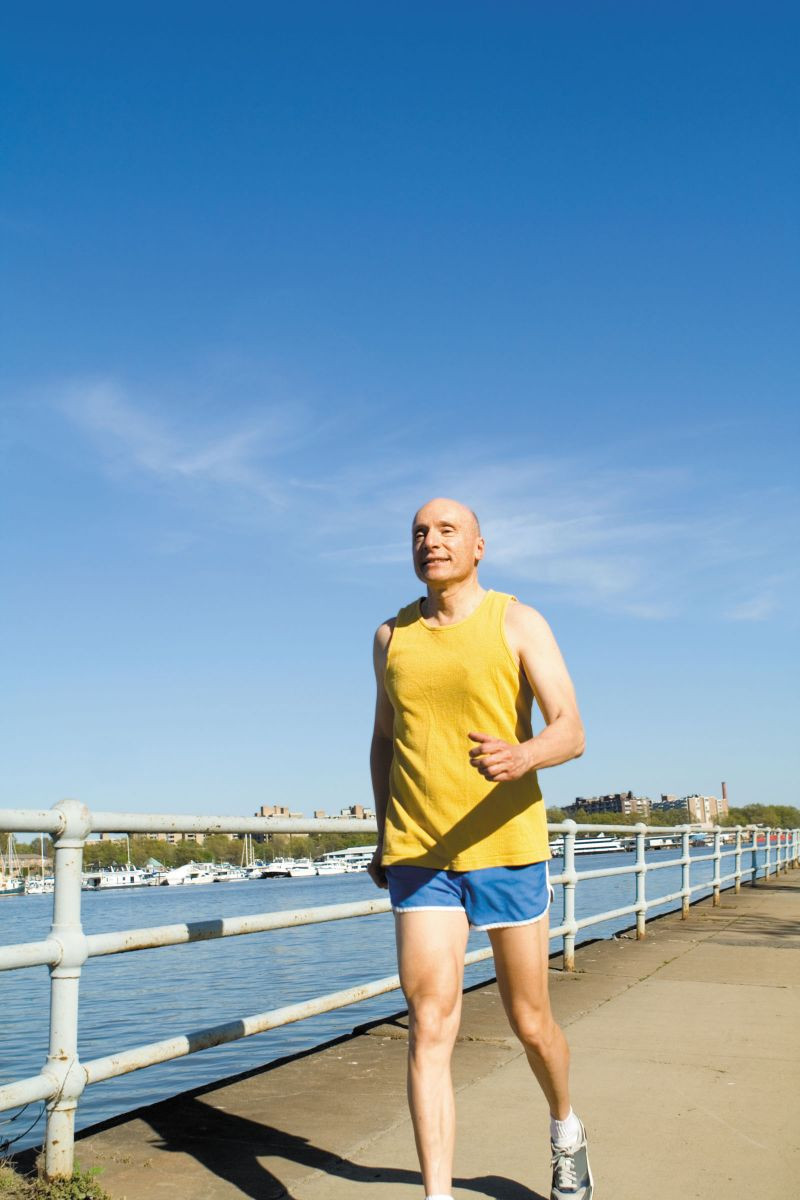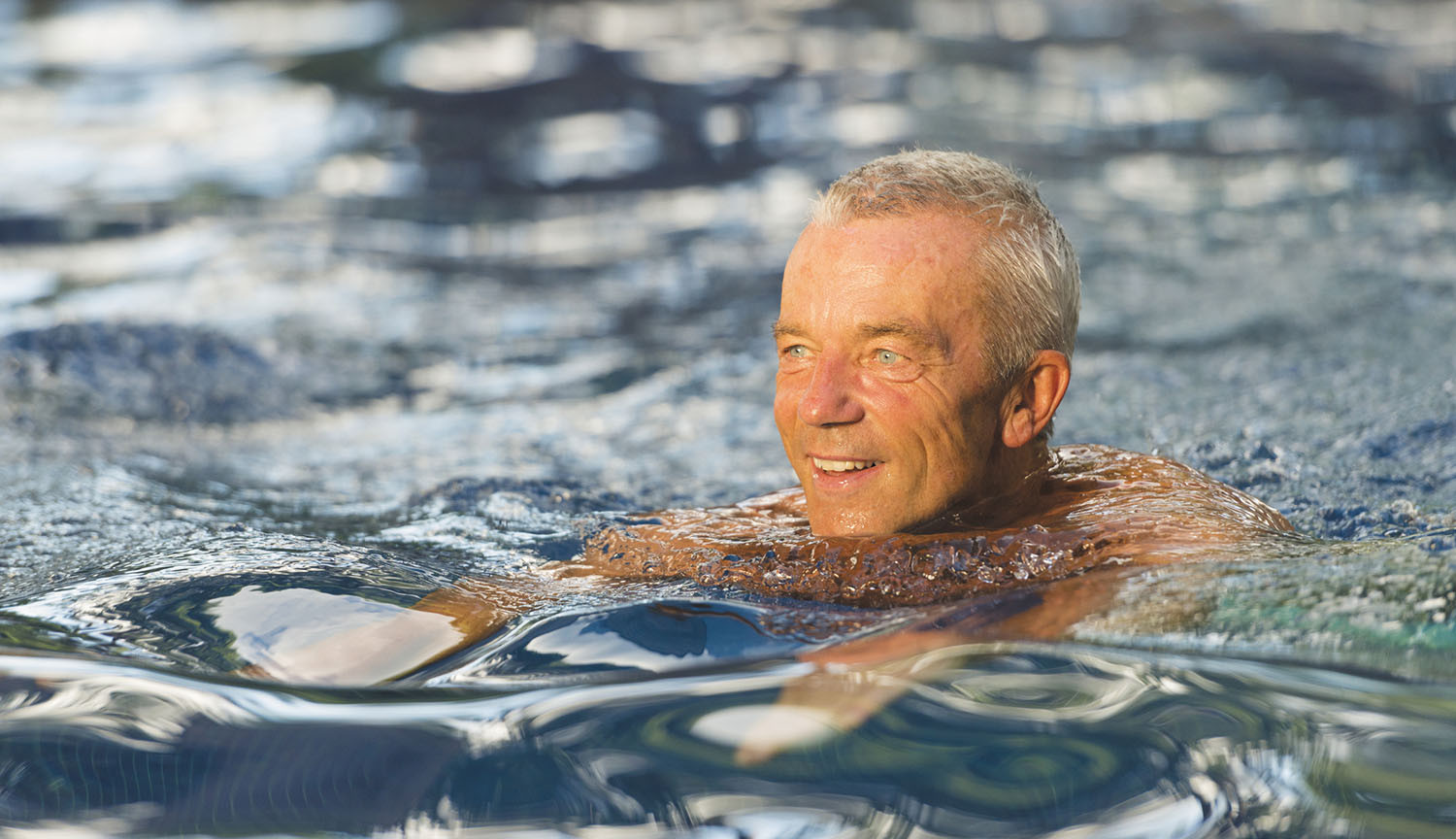
What are somatic workouts?

How to curb your stress eating

How to spot Parkinson’s disease symptoms

8 simple ways to reduce ultra-processed foods in your diet

Heart failure symptoms in women: How they’re different

GERD diet: Foods to avoid to reduce acid reflux

Strong is the new skinny

Everyday habits that sneakily weaken your bones

Don’t wait to get help for back pain

Correcting how you walk may ease osteoarthritis knee pain
Exercise & Fitness Archive
Articles
Join the resistance
Resistance bands offer an easy way to get an all-around strength workout at home.
They are cheap and lightweight. They travel well, and you can do almost any kind of muscle-strengthening exercise with them. They are giant rubber bands known as resistance bands, and they should be part of every man's exercise toolbox.
"Whether you need to focus on specific areas or need to better control exercise resistance — like when recovering from an injury or dealing with joint pain — bands offer something for almost anyone, no matter his physical health, limitations, or fitness goals," says physical therapist Shawn Pedicini with Harvard-affiliated Spaulding Rehabilitation Network.
Step lively to a longer life?
Research we're watching
People who walk at a brisk clip may live longer than those who walk slowly — regardless of how much they weigh, a new study finds.
Researchers looked at data from nearly 475,000 adults in the United Kingdom Biobank study, which recruited middle-aged participants from 2006 to 2010. The participants, most of whom were slightly overweight, were asked to describe their usual walking pace as slow, average, or brisk.
10,000 steps a day — or fewer?
If you’re trying to take 10,000 steps a day, it can be discouraging to miss that well-known target. But why is 10,000 steps the goal? And is it really necessary to take that many steps every day?
Great exercise that's easier on the joints
Aquatic therapy can reduce pain and pressure while providing an effective workout.
When you're struggling with joint pain, gravity can make exercise an unpleasant experience. But exercising in water, also known as aquatic therapy, can change all that. "It enables you to do many of the same exercises you'd do on land without applying the same force on your joints," says Gayle Olson, a certified athletic trainer at the Sports Performance Center at Harvard-affiliated Massachusetts General Hospital.
Dive into a swimming regimen
Lap swimming offers a total-body workout of strengthening, stretching, and aerobic conditioning.
When you think of a swimming workout, you may envision an athlete pounding away at the water, racing from one end of the pool to the other. But you don't have to break speed records to reap the rewards of swimming back and forth, and you don't even have to do the competitive swimming stroke known as the crawl.
"The pace is up to you, and any stroke is fine. Breaststroke, sidestroke, and backstroke are often favored because a lot of people don't like putting their face in the water, like you have to do with the crawl," says Leigh de Chaves, a physical therapist and clinical supervisor of rehabilitation services at Harvard-affiliated Brigham and Women's Hospital. She also swam competitively in college.
Walk your dog, break a bone?
News briefs
Owning a dog has many benefits, and a great one is the exercise you get from taking the leashed pet for walks. But there's also a potential risk for older adults who walk their dogs: broken bones. According to a study published online March 6, 2019, by JAMA Surgery, researchers who combed through 13 years' worth of data from emergency departments across the United States identified a rising number of fractures among older adults walking leashed dogs: 1,700 in 2004, climbing to almost 4,400 in 2017. Most (53%) of the bone breaks were in the upper arm, and 17% were hip fractures. Almost 30% of the patients required hospital admission during the study period. Either a large dog (which can knock you down or pull you over) or a small dog (which can get under your feet) can pose a fall risk, especially if you have problems with balance. How can you protect yourself? The authors suggest obedience training can help keep Fido from putting you at risk.
Image: © monkeybusinessimages/Getty Images
Even light physical activity may help your heart
Mounting evidence suggests that all movement — even low-effort activity — counts for preventing cardiovascular disease as people age.
When exercise experts talk about physical activity, they often focus on moderate and vigorous exercise — the types that get your heart pumping. But there's a growing appreciation that any type of activity that gets you up and off the couch also may benefit your heart.
One recent study found that doing light physical activity (preparing a meal or strolling through a park, for example) may lower the risk of cardiovascular disease among women in their early 60s and older (see "Low-intensity activity and heart disease risk"). The new study directly measured how much time people spent moving, using a device that tracked body movements and could assess light-intensity activity accurately, says study coauthor Dr. I-Min Lee, professor of medicine at Harvard Medical School.
Bust your belly for a healthier heart
If your abdomen looks like an apple (or a beach ball), it's a sign that something hazardous lies beneath.
What's a telltale sign of potential health problems? Look down. Whether you call it a potbelly or spare tire, this noticeable bulge can be more dangerous than you realize.
"It's common for men to put on a few extra pounds every year as they age, but they really should pay attention to increasing waist size," says Dr. Jody Dushay, an endocrinologist with Harvard-affiliated Beth Israel Lahey Health. "Any extra weight around the waist can be especially detrimental to your health."
Dive in for joint health
Swimming can keep your joints flexible, reduce stiffness, and increase mobility.
When you were a kid, swimming was no doubt a favorite summertime activity. Now, it may be one of the best ways to keep your older joints healthy.
"As a low-impact activity, swimming places minimal stress on the joints," says Sarah Ellison, an aquatic physical therapist with Harvard-affiliated Spaulding Rehabilitation Network. "The buoyancy of the water allows you to move limbs and joints more easily through their normal range of motion. This helps joints remain supple and improves overall flexibility."
Regular exercise adds up to big memory boosts
In the journals
It's well known that regular exercise helps maintain brain function. New research finds that brain activity increases and memory improves immediately after even a short, single bout of exercise.
And the more exertion you put into that exercise, the greater the improvements. In addition, whatever level of exertion you're able to achieve on that single exercise predicts how much brain boost you'll get if you continue to exercise at the same intensity over a longer term. These findings were presented at the Cognitive Neuroscience Society's annual meeting on March 24, 2019. Researchers recruited 34 people, average age 67, and gave each a baseline functional MRI (fMRI) scan, which reflects brain activity, and a memory test in which they had to remember faces. The researchers then asked the participants to exercise for 20 minutes on a stationary bike that could measure their physical effort.

What are somatic workouts?

How to curb your stress eating

How to spot Parkinson’s disease symptoms

8 simple ways to reduce ultra-processed foods in your diet

Heart failure symptoms in women: How they’re different

GERD diet: Foods to avoid to reduce acid reflux

Strong is the new skinny

Everyday habits that sneakily weaken your bones

Don’t wait to get help for back pain

Correcting how you walk may ease osteoarthritis knee pain
Free Healthbeat Signup
Get the latest in health news delivered to your inbox!
Sign Up











